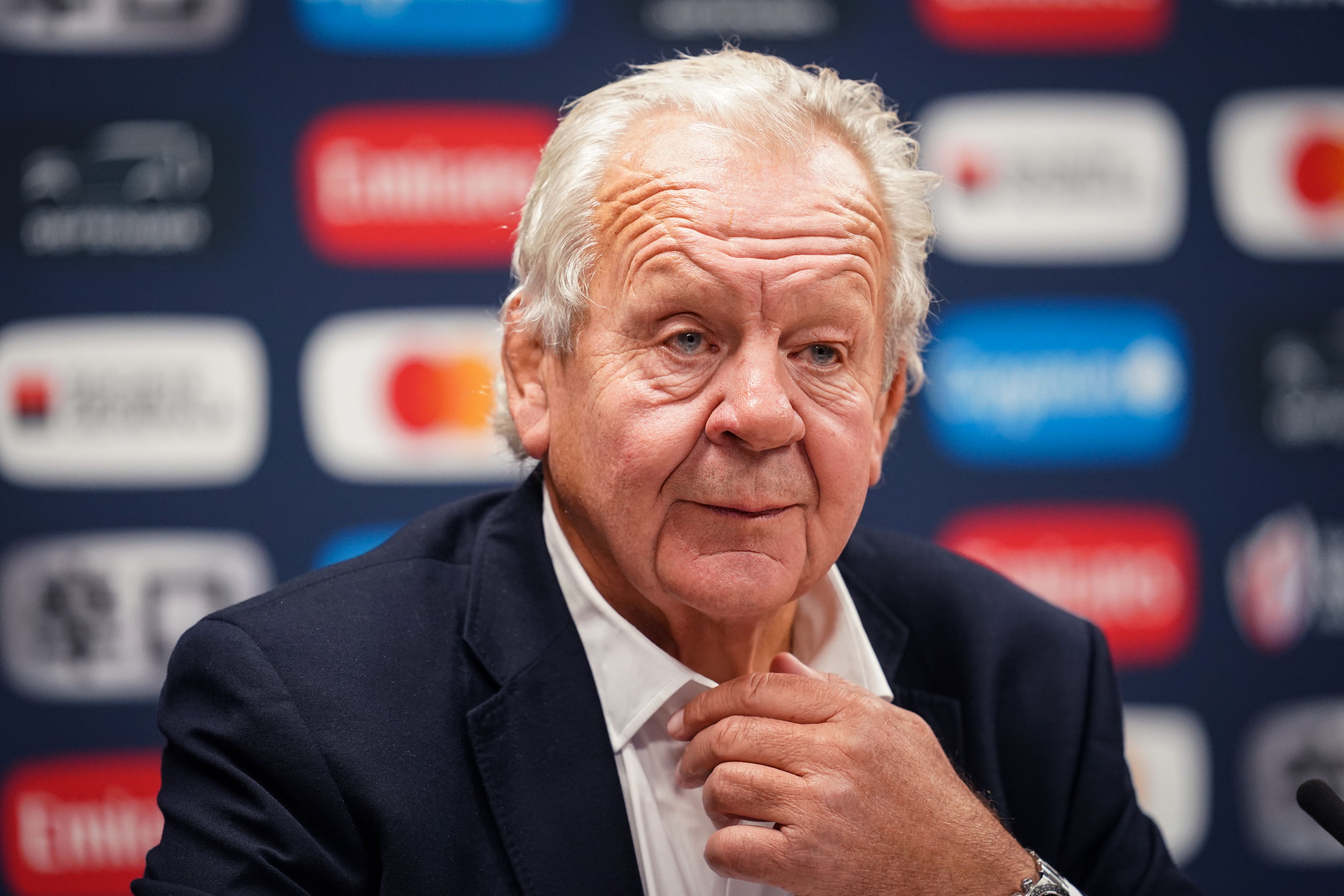Sir Bill Beaumont ‘flattered’ by approach for new role helping injured players
Former England captain is new patron of Injured Players Foundation.

Your support helps us to tell the story
This election is still a dead heat, according to most polls. In a fight with such wafer-thin margins, we need reporters on the ground talking to the people Trump and Harris are courting. Your support allows us to keep sending journalists to the story.
The Independent is trusted by 27 million Americans from across the entire political spectrum every month. Unlike many other quality news outlets, we choose not to lock you out of our reporting and analysis with paywalls. But quality journalism must still be paid for.
Help us keep bring these critical stories to light. Your support makes all the difference.
Sir Bill Beaumont admitted he “did not give it a second thought” when he was approached to fill the latest role in his long and illustrious rugby union career.
Beaumont has achieved much in the game as a Grand Slam-winning England skipper and British and Irish Lions captain, who went on to serve as chair of the Rugby Football Union and World Rugby.
His second term at the helm of World Rugby ends in November, but the 72-year-old has no intention of winding down.
Beaumont was recently installed as new patron of the Rugby Football Union Injured Players Foundation (IPF), an organisation that supports players in England who have suffered a catastrophic spinal cord or traumatic brain injury on the field of play.
There are 150 lifelong beneficiaries of the IPF, with some of those players having sustained their injuries dating back to the 1960s.
More than 30 years after SPIRE – the English game’s first charity for injured rugby players – was established, the IPF’s formation in 2008 has expanded an enviable network of support for players and their families.
“My old headmaster Ian Beer actually set this up in 1993, so I am delighted to be following in his footsteps,” Beaumont told the PA news agency.
I was flattered to be approached about it. I didn't give it a second thought
“Rugby has been such a part of my life. My father played rugby, my grandfather coached rugby, I have three sons who played rugby – one still playing professionally – and two grandchildren playing mini rugby at the Fylde club, where I played all my rugby.
“I was flattered to be approached about it. I didn’t give it a second thought. It is something I want to do.
“A big focus for me as patron will be advancing the great work achieved to date in bringing together foundations, governing bodies and medical experts from different countries to share knowledge and research findings, as well as developing successful models of support for catastrophic injury and reduction of its causes.”
The IPF supports players back into work or education and funds training programmes or required adaptations to offices and homes as part of its support packages.
Some 76 per cent of IPF clients are either employed or in voluntary roles, compared to a national average of less than half that figure for people with spinal cord injuries.
Jack Fishwick sustained a catastrophic injury playing rugby at the age of 26, being hospitalised for eight months, and he said: “In that situation, everyone is in meltdown and they (IPF) were our go-to people for everything we needed.
“The most important thing has been the personal approach. The IPF became our extended family.
I had no idea how much the charity did for someone seriously injured playing rugby
“I had no idea how much the charity did for someone seriously injured playing rugby and the help I have been given is substantial and far outweighs what I might have anticipated.”
Beaumont added: “Normally, the support is inside 24 hours of an accident being reported. There will be somebody there from the IPF, not only for the patient but for the family as well.
“It is trying to give that reassurance that there are people who care and people who understand where they are and what help the IPF can give them immediately, not from a medical point of view but just a practical support, that is vital.
“Thankfully, these types of life-changing injury remain extremely rare in rugby union. Unfortunately, however, accidents happen on the rugby field.
“What I want to do (helped by an impressive support squad that includes Jonny Wilkinson, Sarah Hunter, Jason Robinson and Emily Scarratt) is help them raise the profile and help fund-raising.
“So if there are accidents, then the funding is available that will hopefully enhance lives going forward for the injured person and their families.”